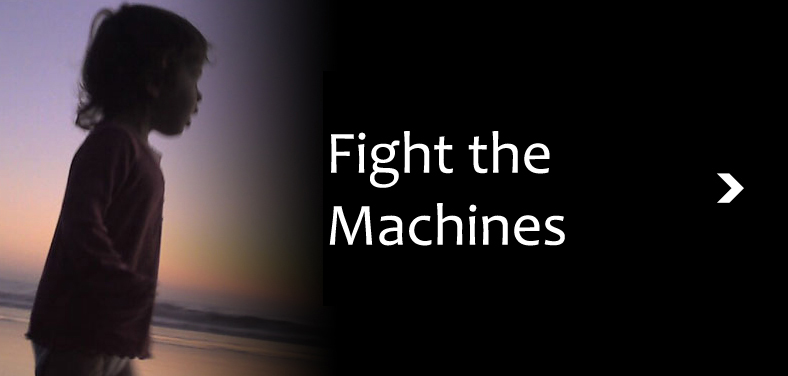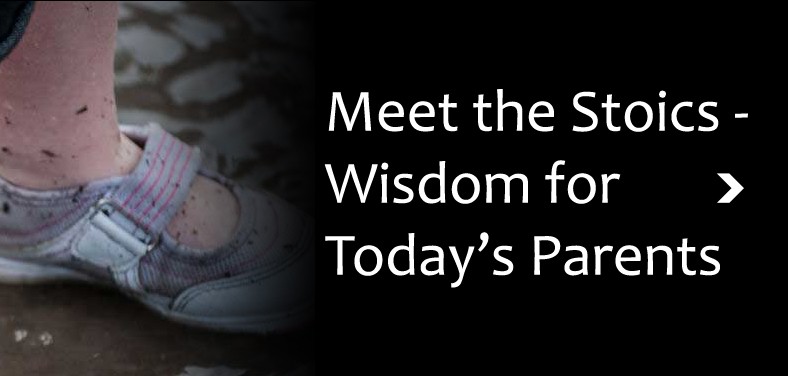We gotta help our little kids fight the machines.
I could have called this “How to keep living in a F’ed-up world from hurting your child.”
Today, we do more an more of their interacting through screens. There is another way: face-to-face. People skills. When machines are doing everything else, people skills are going to be even more economically valuable – and when it comes to having productive satisfying relationships, and complex cooperation, and leaders and teams … People schools are invaluable. No app can replace the ability to interact; the powers of empathy and self-knowledge; resilience and humor … nor can an app give confidence, and the ability to take risks, to learn and to grow as a person. People have barely figured it out, and we’ve kind of lost our way by turning so much over to these devices.
So – people skills. Social, Emotional and Cognitive skills – how do you give them to your kid? Especially when you have limited time with them?
I am [Ben Swett, also know as Jesus Christ SuperDad,] the Toddler Parenting Messiah.
Research, practice, wisdom and experience can be distilled into a method for giving your kid the people skills advantage. We call it the Strong StartTM System, and here’s what it’s all about:
- Focus on your relationship with your kid – and thus, your relationship skills. This does not mean being your kid’s buddy, or being a pushover, or intimidating them – it requires skills that will help you in all of your relationship. This relationship is one of the best things you can do for your kid, it will last your whole lives together, and you can’t do it with a phone in your hand.
We teach you how to cultivate an effective father’s presence. It’s not that difficult. Here’s what’s included:
- Your view of the child: How you see your child affects your mindset, which drives your actions, which create the child’s reality – where she learns what works, and what doesn’t; what she can do, and ultimately, who she is.
- Your habits of interaction: How you respond, how you speak, how you listen, how you touch the child and move your own body – these things form how you child sees himself, and how he interacts with the world.
- How to set boundaries and deal with problem behaviors.
- How to respond when something bad happens to your child.
- Your child is studying you – how to make sure what she sees helpful to her.
- How to understand your own feelings – and the ways they affect how you interact with your child.
- Managing your partnership with other adults – for the sake of your child.
To make it easy, we focus on “The 3 Rs”
- Respect. Foreign to many of us, essential for working with someone who has only been on this planet for a little while. In practice, it’s habits to give agency to the child – giving them information rather than direction, for example.
- Reflect. Or, “the opposite of react.” As well as “bouncing back what is actually going on,” reflection is defined as the uniquely human ability to imagine the mental states of others, as well as to understand ones’ own state. This requires slowing down, being in the moment and available, using your words, and … Reflecting.
- Represent. Your kid is studying you all the time, whether you want them to or not. They are learning how to be human – you can get in the habit of helping the process along, by learning how to “feel out loud” as well as how to “think out loud.” Conflicts and setbacks are part of life, and you will show how they are dealt with.
Back to the machines:
What did Neo say at the end of the (first) Matrix? “I didn’t come here to tell you how this is going to end. I came here to tell you how it’s going to begin. I’m going to hang up this phone, and then I’m going to show these people what you don’t want them to see. I’m going to show them a world without you. A world without rules and controls, without borders or boundaries. A world where anything is possible.”
While I’m not exactly sure what that means, I can tell you a few things from my work with young children. We don’t teach young children; they learn from their environment, through trial and error. You are probably the strongest force in that environment. At this stage, they are learning, uh, who they are and how the world works, and how they interact with the world, and vice versa.
So, back to the machines:
- Dumb Passive Toy – Smart Active Kid; Smart Active Toy – Dumb Passive Kid.
To the young imagination, a kitchen colander, a few blocks – they can be anything – the young mind puts things together in many ways during growth.
A machine with blinking lights that rewards the user for pushing buttons – how is that okay? Every day, I see kids in strollers staring at screens, waiting for their game to respond, while their caregivers are also absent, in a world of birds, plants and wind.
- Online gets it wrong.
How do you fix a misunderstanding? By sending emojis? How do you know what a text message really means? How do you learn body language, nuance, and the joy of working together to create something? How do you learn to face yourself, alone, be who you are, and act with strength to get what you want? Your body learns it first, then your mind, then your heart, then your soul. And there is no place in there for anything on a screen.
- Good things happen gradually, and slowly – in real time.
You can stop and take selfies, but cooking, talking, dancing, making love – your hands, your heart; your eyes, your mind – these are all things that people do – and do better without machines.
So, what’s the deal here?
We’ve developed a program based on the best of other systems: RIE & Reflective Parenting; Cognitive Behavioral Therapy & Roman Stoicism. This collection of tips, tricks and ideas are designed to help you …
Invest in your relationship with your child
Pick up some skills, and some productive habits. With parenting, like some many things, it’s not “How much” or “How Many” … It’s “How Well.” A little time now will pay off, so much, for the rest of your life, and will give your child real advantages for the rest of theirs.




Add comment